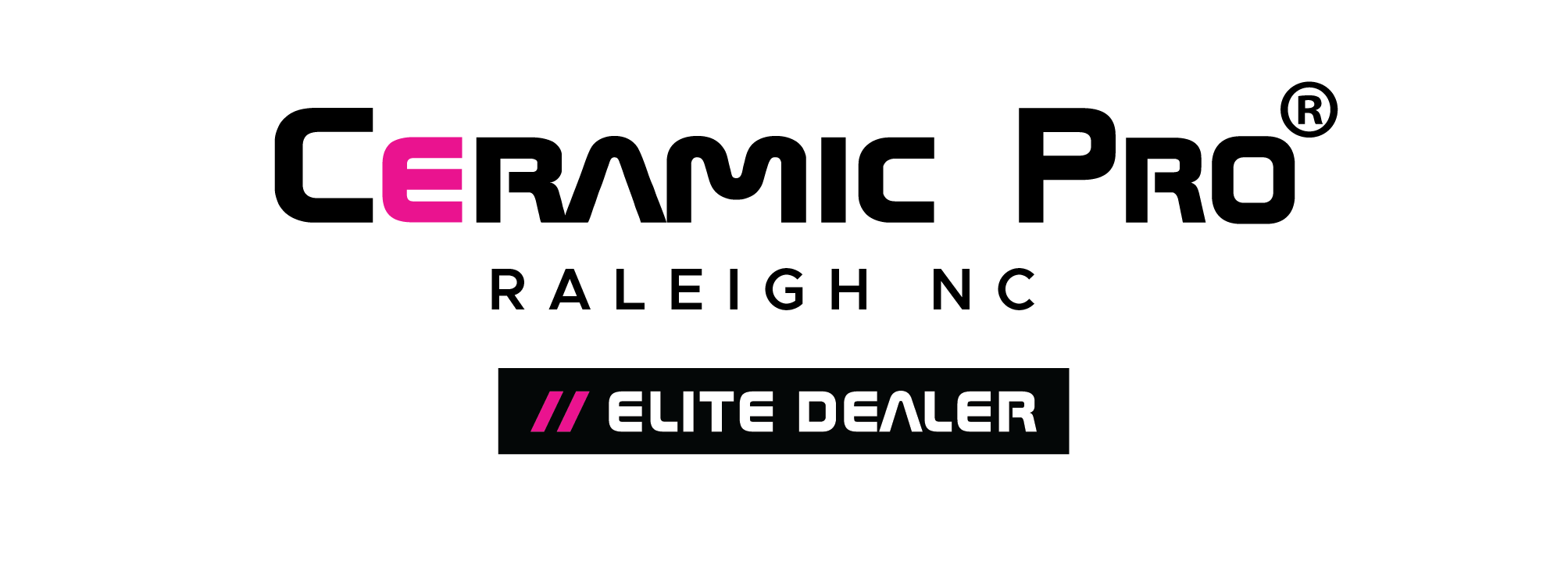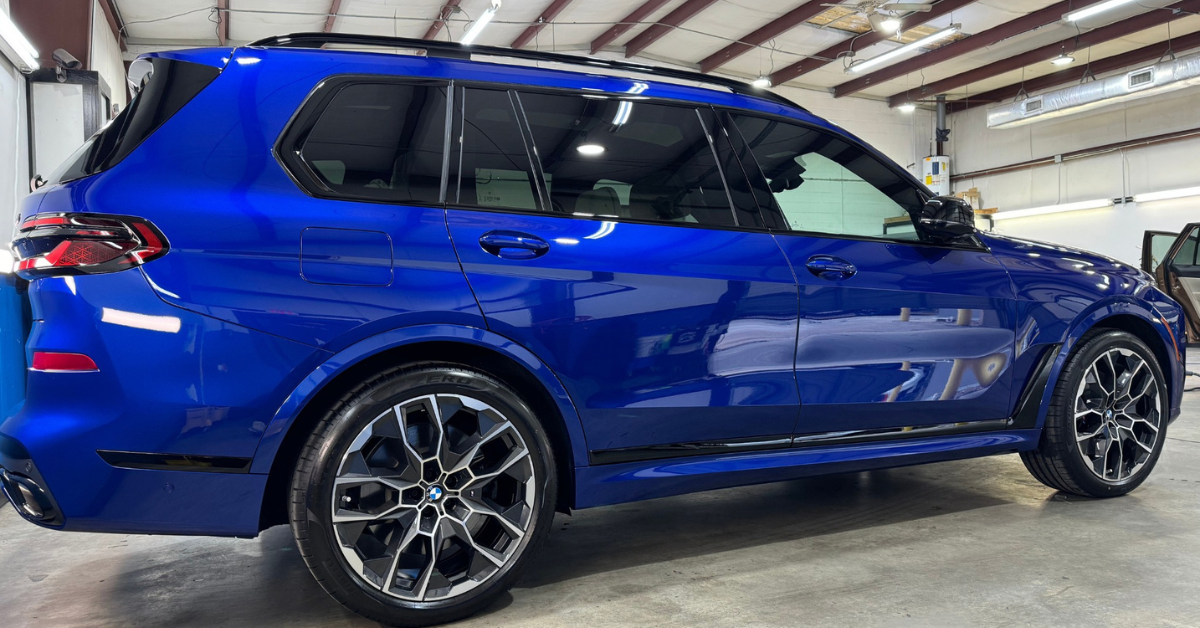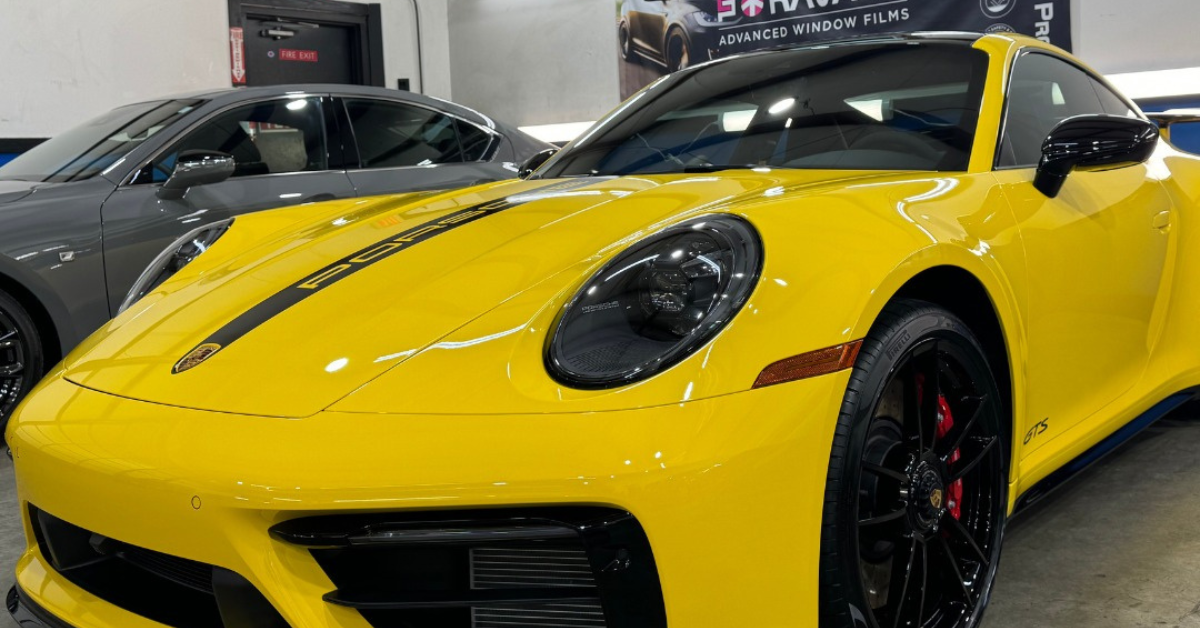Enhance comfort, safety, and privacy with window tinting. Reduce heat, save on fuel, and block harmful UV rays. Protect your interiors from fading and cracking. Improve security and deter theft with added privacy. Choose between dyed, metalized, carbon, or ceramic tint. Increase energy efficiency and home security. Block UV rays, reduce skin damage, and prevent furniture fading. Give your vehicle a sleek look and protect against UV rays. Guarantee compliance with legal regulations and proper installation techniques. Maintain your tint with regular cleaning and inspections. Consider costs and additional services when planning your project. Explore the world of window tinting for a multitude of benefits.
Key Takeaways
- Window tinting enhances comfort, privacy, safety, and energy efficiency for vehicles and homes.
- Different types of window tints offer unique benefits like glare reduction, heat rejection, and UV protection.
- Legal considerations for window tinting vary by region, with laws based on the Visible Light Transmission (VLT) percentage.
- Maintenance tips include regular cleaning, avoiding harsh chemicals, and allowing the tint to cure after installation.
- Cost factors involve the type of tint film, number of windows, additional services, and obtaining quotes for comparison.
Importance of Window Tinting
Window tinting plays an important role in enhancing the comfort, privacy, and safety of your vehicle. By applying window tint, you aren’t only improving the aesthetics of your car but also ensuring a more pleasant driving experience. One key benefit of window tinting is its ability to reduce the amount of heat that enters your vehicle. This can help maintain a cooler interior temperature, especially during hot summer days, making your drive more enjoyable and reducing the need for excessive air conditioning, which can save you money on fuel.
Moreover, window tinting provides added privacy for you and your passengers. With tinted windows, you can feel more at ease knowing that prying eyes are less likely to see inside your vehicle. This sense of privacy enhances your overall comfort while driving and can be particularly valuable in busy urban areas or when parked in public spaces.
In terms of safety, window tinting can help protect you and your passengers in the event of an accident. The film used in window tinting is designed to hold glass together upon impact, preventing it from shattering into sharp, dangerous shards. This can reduce the risk of injuries from broken glass during collisions, providing an additional layer of protection for you and your loved ones.
Types of Window Tint
When considering types of window tint for your vehicle, it’s essential to understand the various options available to make an informed decision. Here are four common types of window tint you might encounter:
- Dyed Window Tint: This type of tint is made by placing a layer of dye between an adhesive layer and a protective outer coating. It is known for its solid color and ability to reduce glare.
- Metalized Window Tint: Metalized tint contains small metallic particles that reflect heat and UV rays away from the vehicle. It’s durable and provides excellent heat rejection, but it can interfere with electronic signals like GPS and radio.
- Carbon Window Tint: Carbon window tint is a high-quality option that doesn’t contain metal layers. It offers superior heat rejection, UV protection, and a sleek matte finish.
- Ceramic Window Tint: Ceramic tint is considered top-of-the-line due to its advanced technology. It consists of ceramic particles that are non-conductive and non-metallic, allowing for maximum heat and UV rejection without interfering with signals. Though it’s pricier, ceramic tint provides excellent clarity and durability.
Each type of window tint has its unique features and benefits, so consider your priorities and consult with a professional to determine the best option for your vehicle.
Benefits for Homeowners
When considering window tinting for your home, you can look forward to enhanced energy efficiency, improved privacy, and security. The added benefit of protection against harmful UV rays is also significant.
Energy Efficiency Enhancement
To maximize energy efficiency in your home, consider the benefits that come with enhancing window tinting. Window tinting can greatly contribute to a more energy-efficient home by reducing heat gain during the summer and heat loss during the winter. Here are some reasons why enhancing window tinting can help improve energy efficiency:
- Reduced Cooling Costs: Window tinting blocks out a substantial amount of the sun’s heat, reducing the need for excessive air conditioning.
- Improved Insulation: Tinted windows help to insulate your home, keeping it warmer in the winter and cooler in the summer.
- Lower Energy Consumption: By regulating indoor temperatures, window tinting can decrease the amount of energy needed to heat or cool your home.
- Environmental Benefits: Decreased energy consumption leads to a diminished carbon footprint, contributing positively to the environment.
Privacy and Security Improvement
Enhancing window tinting not only boosts energy efficiency but also greatly enhances privacy and security for homeowners. By applying window tint films, you create a barrier that reduces visibility into your home from the outside. This added privacy can make you feel more secure, especially in areas where homes are closely situated.
Tinted windows also help deter potential intruders by making it difficult for them to see inside your home, decreasing the likelihood of break-ins. Additionally, window tinting can prevent shattered glass from scattering in case of a break-in or natural disaster, as the film holds the glass together. This security feature not only protects your home but also enhances your peace of mind.
UV Protection Benefits
Curious about how window tinting can benefit homeowners in terms of UV protection? Here’s how it can help you:
- Reduced Fading: Window tinting can block harmful UV rays, protecting your furniture, flooring, and decor from fading caused by sun exposure.
- Skin Protection: By reducing UV rays entering your home, window tinting helps safeguard your skin from sun damage, lowering the risk of skin cancer and premature aging.
- Energy Efficiency: UV protection window films can improve your home’s energy efficiency by reducing heat gain, allowing you to rely less on air conditioning during hot days.
- Enhanced Comfort: With UV protection window tinting, you can enjoy a more comfortable indoor environment with reduced glare and consistent temperatures.
Benefits for Vehicle Owners
When you tint your vehicle’s windows, you can expect improved aesthetics with a sleek and modern look that enhances the overall appearance of your car.
This process also offers protection from harmful UV rays, safeguarding your skin and interior from sun damage.
Additionally, window tinting provides enhanced privacy inside your vehicle, allowing you to feel more comfortable and secure while driving or parked.
Improved Aesthetics for Cars
Enhancing the aesthetics of your vehicle through window tinting can greatly improve its overall appearance and appeal. Here are four key ways window tinting enhances the look of your car:
- Sleek Appearance: Window tinting gives your vehicle a modern and sleek look by adding a touch of sophistication to its design.
- Privacy and Elegance: Tinted windows provide privacy for you and your passengers while adding an elegant touch to the vehicle’s exterior.
- Uniformity: Tinted windows create a uniform appearance, enhancing the overall symmetry and style of your car.
- Enhanced Contrast: The contrast between the tinted windows and the car’s paint color can create a visually appealing effect, making your vehicle stand out.
Protection From UV Rays
Window tinting offers vehicle owners protection from harmful UV rays. Installing window tint creates a barrier that can block the sun’s harmful UV rays from entering your car.
This protection not only safeguards your skin from sun damage but also prevents your vehicle’s interior from fading and deteriorating due to UV exposure. Prolonged sun exposure can lead to cracked dashboards, faded upholstery, and brittle plastic components inside your car.
Window tinting acts as a shield, preserving the appearance and integrity of your vehicle’s interior, ultimately prolonging its lifespan. With this added protection, you can enjoy peace of mind knowing that your car is shielded from the damaging effects of UV radiation.
Enhanced Privacy Inside
To increase privacy inside your vehicle, window tinting provides a shield that limits visibility from outside while maintaining clear visibility from within. Here are four key benefits of enhanced privacy through window tinting:
- Prevents Peeping: Window tinting obstructs the view from outside, preventing curious onlookers from peeking into your vehicle.
- Protects Valuables: By reducing the visibility of items inside your car, tinted windows deter potential theft and keep your belongings safe.
- Enhances Security: Increased privacy can make you feel more secure while driving or parked in unfamiliar areas.
- Personal Sanctuary: Enjoy a more intimate and secluded atmosphere inside your vehicle, creating a personal space that belongs to you.
Legal Considerations
When contemplating window tinting, it’s vital to be aware of the legal restrictions imposed by your state or region. Window tinting laws vary widely across different areas, so it’s essential to understand the regulations that apply to your specific location to avoid potential fines or penalties.
The legality of window tinting is typically determined by the Visible Light Transmission (VLT) percentage, which refers to the amount of light that’s allowed to pass through the tinted windows. Most states have specific VLT limits for different windows on a vehicle, such as the front windshield, side windows, and rear windshield. It’s important to make certain that your window tint complies with these regulations to prevent any legal issues.
Additionally, some regions have restrictions on the colors and reflective properties of window tinting. Certain colors may be prohibited, and highly reflective tints could be deemed illegal due to their potential to blind other drivers or obstruct visibility.
To stay on the right side of the law, consider consulting with a professional window tinting service that’s familiar with the regulations in your area. They can help you select a tint that meets legal requirements while still providing the benefits you desire, such as UV protection, heat reduction, and enhanced privacy. By adhering to legal considerations, you can enjoy the advantages of window tinting without running into any legal trouble.
Installation Process Overview
Commence the window tinting installation process by thoroughly cleaning the interior surface of the windows using an appropriate glass cleaner. This step is essential to ensure that the tint adheres properly and there are no particles trapped underneath. Once the windows are clean, follow these steps to successfully install window tint:
- Measure and Cut: Carefully measure the dimensions of each window and cut the tint film accordingly with a sharp blade. It’s vital to be precise to avoid wastage and guarantee a proper fit.
- Prepare the Tint Film: Peel off the clear protective layer of the tint film and spray it with a soapy solution to prevent it from sticking before you’re ready to apply it.
- Apply the Tint: Starting from the top, gently place the tint film on the interior side of the window. Use a squeegee to push out any air bubbles and excess water, working from the center towards the edges.
- Trim Excess Film: Trim any excess film using a sharp blade and ensure the edges are neatly aligned with the window frame for a clean finish.
Maintenance Tips
For essential durability and effectiveness of your window tint, regular cleaning and maintenance are vital. To maintain your window tint, start by using a mild, soapy water solution or a specialized window tint cleaner. Avoid harsh chemicals or abrasive materials that could damage the tint. When cleaning, use a soft microfiber cloth to gently wipe the tinted surface. This will help remove any dirt, dust, or grime that may have accumulated.
It is important to avoid rolling down your windows for at least 3-5 days after the tint installation to allow it to cure properly. During the curing process, refrain from cleaning the tint to prevent any disturbances. Once the tint has fully cured, you can proceed with regular cleaning to keep it in top condition.
In addition to cleaning, inspect your window tint regularly for any signs of peeling, bubbling, or discoloration. If you notice any issues, address them promptly to prevent further damage. While window tinting is durable, proper care will extend its lifespan and maintain its appearance over time.
Cost Factors to Consider
To accurately estimate the overall cost of window tinting, contemplate various factors such as the type of tint film, the size and number of windows to be tinted, and any additional services required for installation. The cost of window tinting can vary greatly based on these factors. Here are some key cost factors to contemplate:
- Type of Tint Film: The type of tint film you select will impact the overall cost. Standard-dyed films are usually the most economical option, while ceramic and carbon films are more expensive due to their higher quality and advanced features.
- Size of Windows: Larger windows or windows with intricate shapes may require more material and labor, leading to higher costs. Be sure to measure all windows accurately to get a more precise estimate.
- Number of Windows: The more windows you wish to tint, the higher the total cost will be. Consider which windows are essential to tint based on your needs and budget.
- Additional Services: Some extra services, such as removing old tint, tinting sunroofs or windshields, or opting for security films, can increase the overall cost. Evaluate these services based on their necessity and your budget constraints.
Taking these factors into account will help you plan and budget for your window tinting project more effectively. Make sure to get quotes from multiple window tint providers to compare prices and services before making a decision.
FAQs and Expert Advice
Explore common questions and insights from experts regarding window tinting in this informative FAQ section.
Q: What are the benefits of window tinting beyond aesthetics? A: Window tinting offers UV protection, reduces glare, and enhances privacy by preventing others from seeing inside your vehicle or home.
Q: How long does window tinting last? A: The longevity of window tinting varies depending on the quality of the film and installation. Typically, higher-quality tints can last up to 10 years or more with proper care.
Q: Can window tinting be applied to all types of windows? A: Window tinting can be applied to most windows, including those in vehicles, homes, and commercial buildings. However, some types of glass may not be suitable for tinting.
Q: Will window tinting affect my visibility while driving? A: When professionally installed, window tinting shouldn’t notably impact visibility. It can even reduce glare and improve visibility by blocking harsh sunlight.
Expert Tip: Make sure you comply with local tinting laws to avoid fines or penalties. Consult with a professional tinting service to select the right shade and type of tint for your specific needs.
Review
Window tinting is a wise investment for both homeowners and vehicle owners. With benefits ranging from UV protection to increased privacy, it’s evident that window tinting is a necessity for anyone looking to improve their living or driving experience. Ceramic Pro Raleigh (Phenomenal Detailing) offers top-quality solutions to meet these needs.
Remember, when contemplating window tinting, always seek guidance from a professional to ensure compliance with local regulations. So, don’t hesitate – upgrade your windows today and enjoy the advantages of tinted glass!





